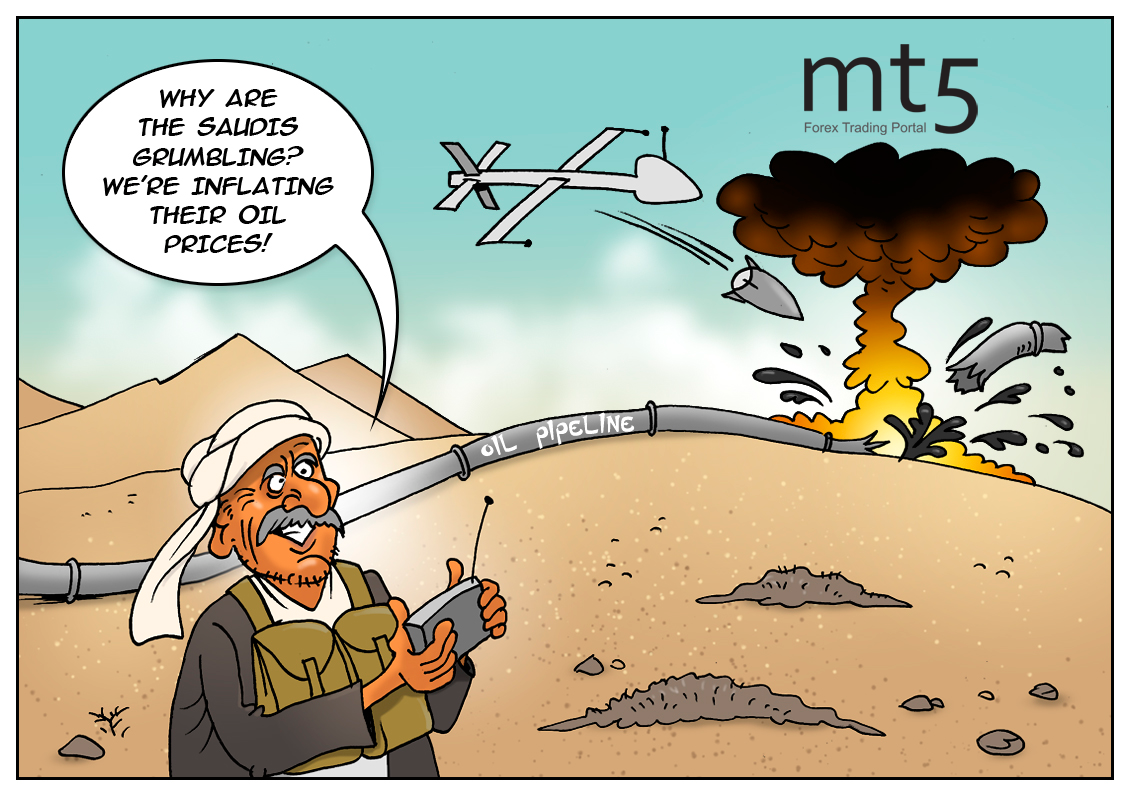
The dynamics of oil futures is dominated by two factors: comments of the US President and unmanned aerial vehicles. While Trump’s attacks are verbal and cause no physical damage, they put oil prices under pressure. At the same time, the aftermath of drones’ attacks is quite tangible and it has boosted a rally in the commodity. After Saudi Arabia reported on several attacks on its oil facilities, the prices started rising. Saudi Energy Minister Khalid Al-Falih called this incident a “cowardly act of terrorism”. He added that nobody was injured in the fire that broke out as a result of attacks on two piping stations and the pipeline between Eastern and Yanbu provinces. However, those strikes were enough to cause a surge in oil prices. Thus, Brent futures with delivery in July inched up by 1.45% to 71.25 dollars per barrel while WTI futures rose by 1.49% to 61.95 dollars per barrel.
Remarkably, the attacks on oil pipelines by drones carrying explosives were not unprecedented. Rebels in Syria and Yemen used these tactics before, but in Saudi Arabia such an incident took place for the first time. To make things worse, attacks were carried out twice. Besides the pipeline, two Saudi oil tankers, one vessel of the United Arab Emirates, and one tanker owned by Norway also became subject to sabotage attacks. Nonetheless, those acts of violence have not caused disruption to supplies from Saudi Arabia. Now the government has a reason to take a harsh stance against terrorists, particularly the Houthi movement that is allegedly supported by Iran.
 English
English 
 Русский
Русский Bahasa Indonesia
Bahasa Indonesia Bahasa Malay
Bahasa Malay ไทย
ไทย Español
Español Deutsch
Deutsch Български
Български Français
Français Tiếng Việt
Tiếng Việt 中文
中文 বাংলা
বাংলা हिन्दी
हिन्दी Čeština
Čeština Українська
Українська Română
Română

Comments: